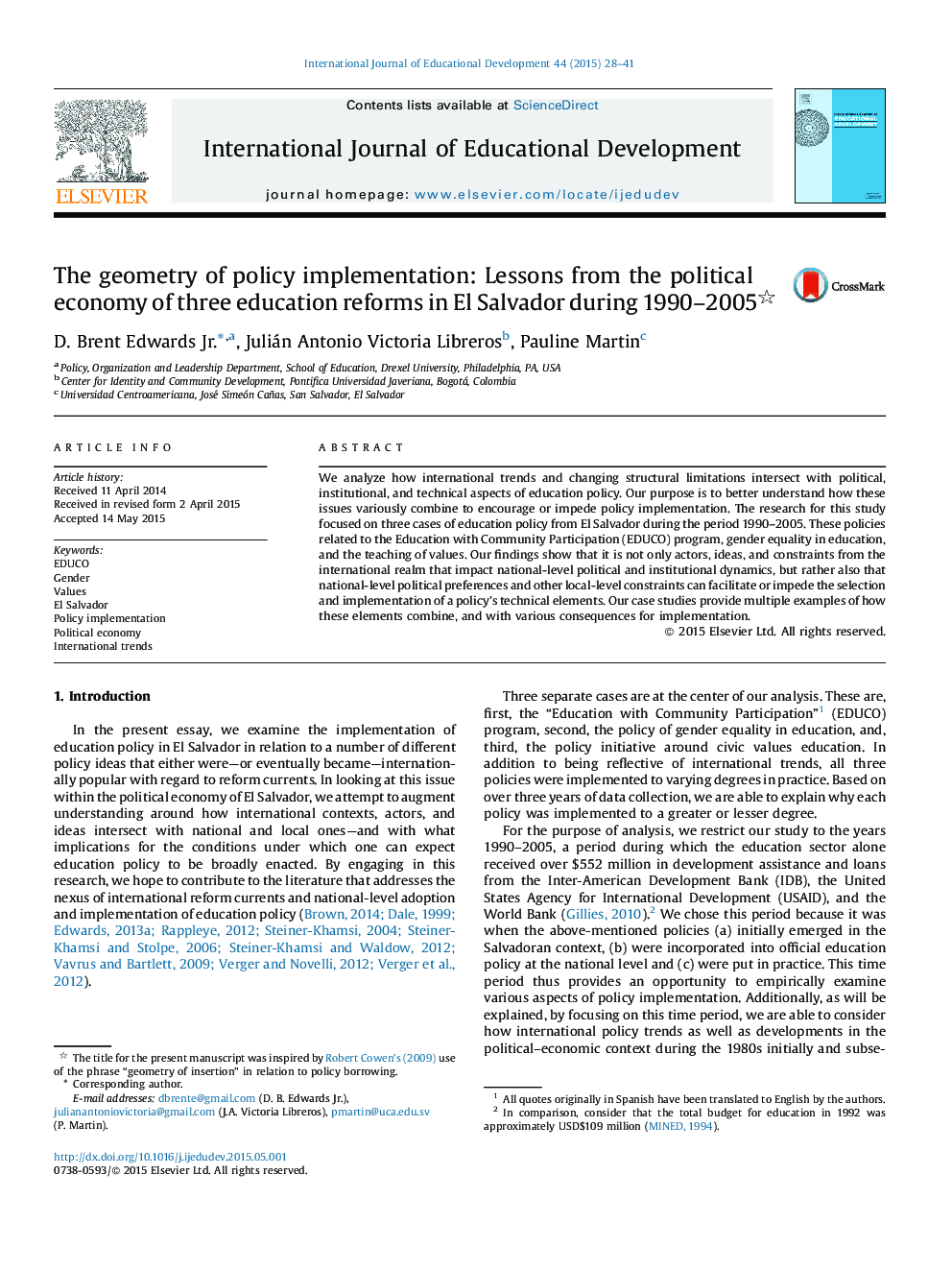| Article ID | Journal | Published Year | Pages | File Type |
|---|---|---|---|---|
| 356054 | International Journal of Educational Development | 2015 | 14 Pages |
•Developments in the underlying political–economic context can themselves affect the preferences of State officials and the nature of the spaces in and through which the technical aspects of reform are elaborated.•Looking at policymaking and implementation at a given point in time cannot be fully understood without incorporating into the analysis (a) the ways in which constraints upon a particular country have changed over time and (b) the way that the State (or the institutions that make up the government) may have changed or otherwise been reconstituted over the course of many years (e.g., through the influence of particularly powerful international actors and/or other political–economic forces).•Within the over-arching political–economic context, the present study examines political, institutional, and technical dimensions of reform during 1990–2005 and offers hypotheses that connect these dimensions with various levels of policy implementation in practice: (a) policy implementation will often be extensive when there is alignment among international trends, structural constraints, and policymaker preferences; (b) moderate policy implementation may result when international trends and international organizations align with policy content but where the reform context and governmental interests are oriented towards the realization of other policies; and (c) minimal implementation likely occurs when there is: no clear international trend, an unfavorable structural context and a policy focus on the part of politicians and essential governmental functionaries that does not align with the interests of those international actors that would otherwise provide a range of institutional supports.
We analyze how international trends and changing structural limitations intersect with political, institutional, and technical aspects of education policy. Our purpose is to better understand how these issues variously combine to encourage or impede policy implementation. The research for this study focused on three cases of education policy from El Salvador during the period 1990–2005. These policies related to the Education with Community Participation (EDUCO) program, gender equality in education, and the teaching of values. Our findings show that it is not only actors, ideas, and constraints from the international realm that impact national-level political and institutional dynamics, but rather also that national-level political preferences and other local-level constraints can facilitate or impede the selection and implementation of a policy’s technical elements. Our case studies provide multiple examples of how these elements combine, and with various consequences for implementation.
